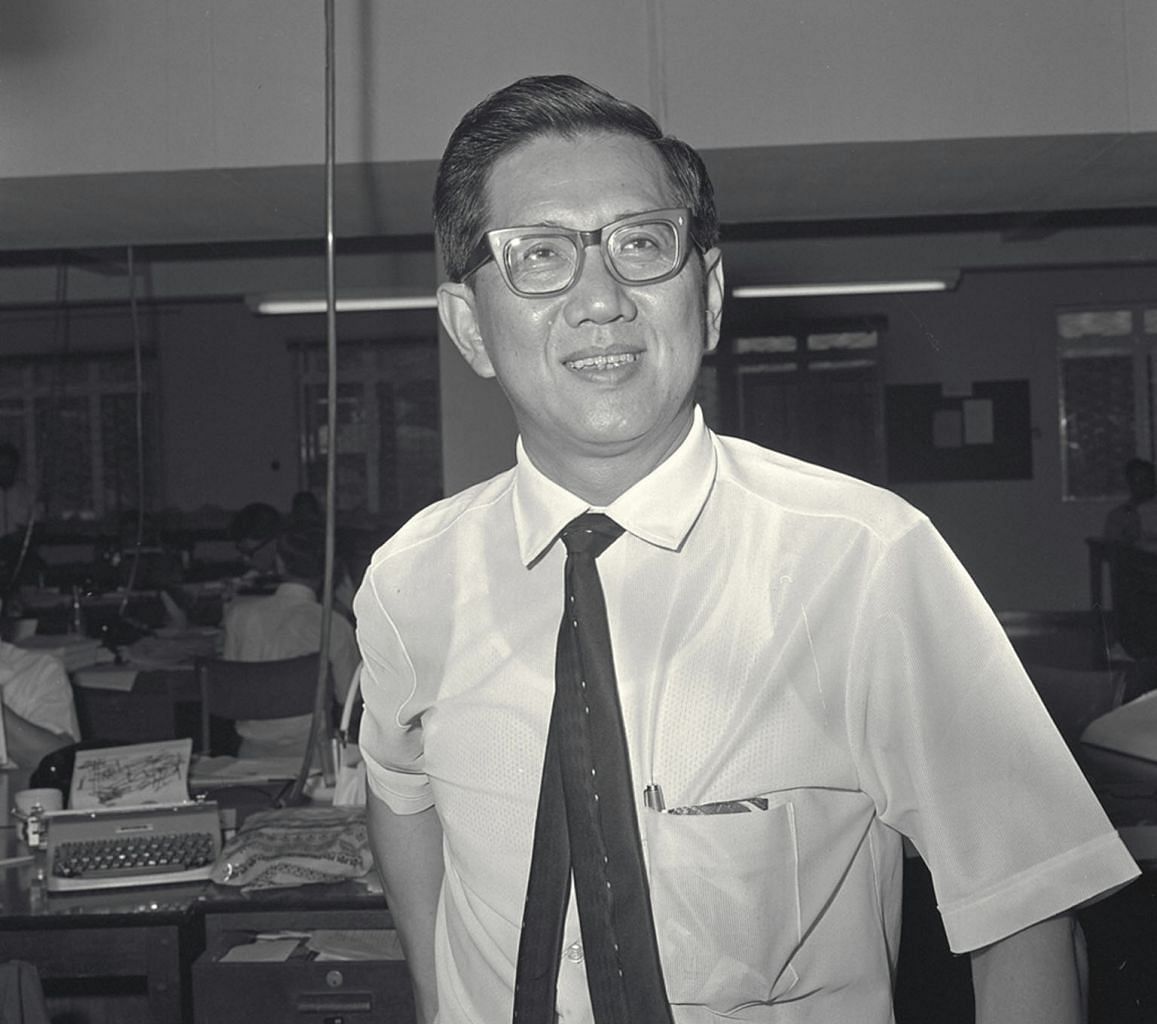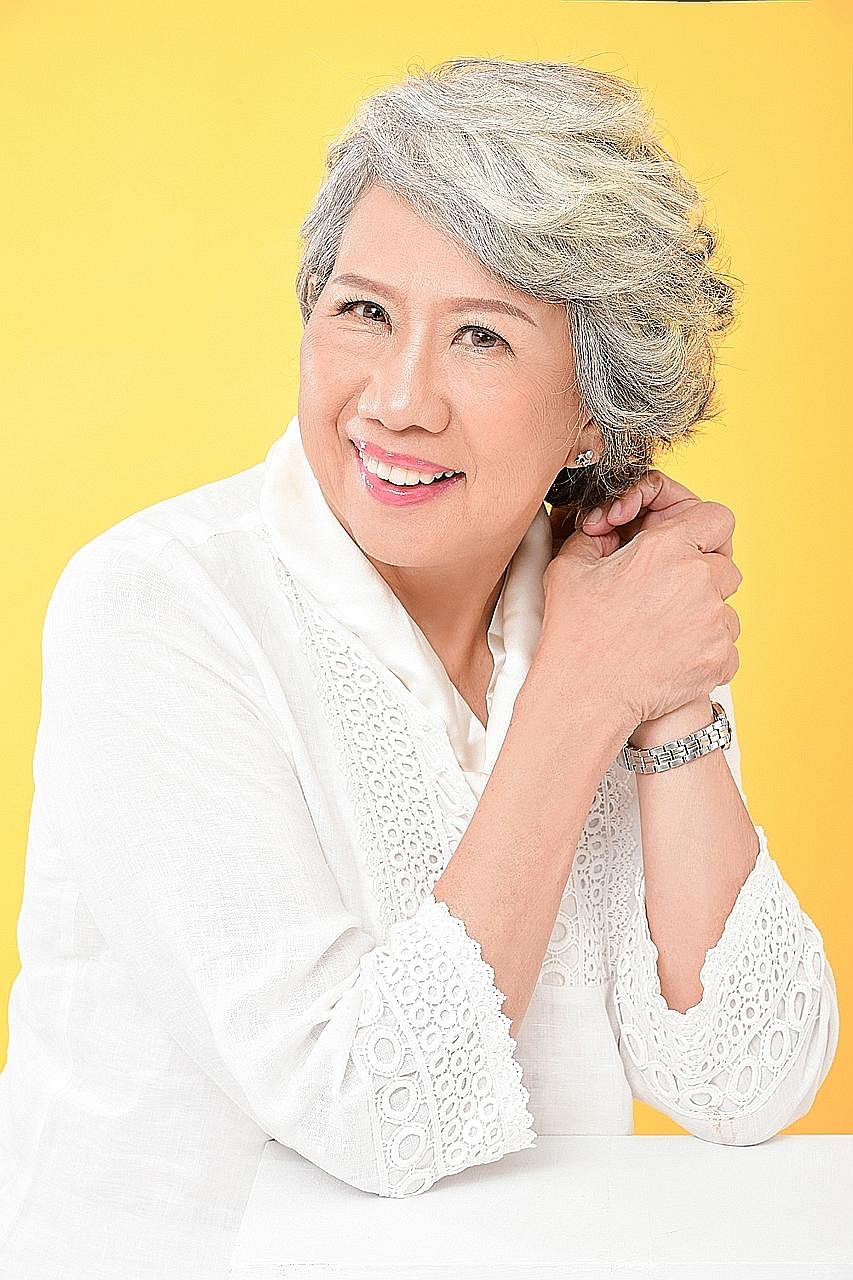COVID-19 SPECIAL
The man who isolated Asian flu virus with help of eggs
Sign up now: Get ST's newsletters delivered to your inbox
As a young girl, Stella Kon accompanied her father, the late Professor Lim Kok Ann, to his workplace.
There, in a darkened laboratory in the microbiology department of the College of Medicine Building in Singapore General Hospital, she would hold up a single chicken egg to a bright, stark light.
Under it, the 13-year-old was able to see through the shell and look for any movement of the chick embryo.
This process, called candling, allowed her to check if the embryos of incubated eggs were still alive after being infected with a new strain of flu.
It was the year 1957 and a spate of cases had broken out in Singapore.
On May 5, The Straits Times reported the outbreak of 30 cases on Pulau Brani, an island between mainland Singapore and Sentosa.
A rural health officer alerted Prof Lim. The symptoms were those typical of influenza, including fever and a cough. In no time, the "Asian flu" had spread throughout Singapore. Eventually, an estimated 680 died.
Prof Lim, a professor at the University of Malaya, became the first person to isolate the flu virus.
In his autobiographical blog, Prof Lim recalled packing glass ampules containing the chick embryo abstract and a patient's serum in dry ice and sending them by air freight to influenza virus laboratories in London, Washington and Melbourne for further tests.
As a result of his contribution, the virus strain was named Influenza A/Singapore/1/57 (an H2N2 subtype of Influenza A, the virus type that most flu pandemics, including H1N1, stem from.)
Thankfully, the flu pandemic left Singapore as quickly as it came. As early as May 21, ST reported: "The flu epidemic in Singapore is fizzling out."
Ms Kon, now 76, can hardly recall the impact of the "Asian flu" as a teenager.
The playwright known for Emily Of Emerald Hill said that after Prof Lim had accomplished the feat of isolating the flu virus, he returned home quietly as he would any other day. There was no celebration in the Lim household.

Professor Lim Kok Ann, who became dean of the medical faculty at the then University of Singapore in 1965, also helped establish the newer Sabin polio vaccine in the 1960s.
ST FILE PHOTO
Ms Kon says: "I was unaware of his success until the newspapers reported it."
She adds that Prof Lim never talked about his past successes.
ST reported international luminaries such as Sir Macfarlane Burnet, director of the Walter and Eliza Hall Institute for Medical Research in Melbourne, praising Prof Lim.
Despite local media hailing him as a "brilliant Singapore scientist" and, in subsequent write-ups, a "flu fighter", Prof Lim downplayed the accolades.
Surrounded by some 400 eggs used in his laboratory research, he said: "It's really a matter of teamwork - modern research always is."
He went on to become dean of the medical faculty at the then University of Singapore in 1965.
Until he died in 2003, he continued to contribute greatly to the medical field.

Playwright Stella Kon says her father, the late Professor Lim Kok Ann, never talked about his past successes.
PHOTO: THE MAKEOVER INC
His other works included helping to establish the newer Sabin polio vaccine in the 1960s.
At that time, there was controversy over the risk of exposing children to the experimental treatment, to which Prof Lim responded: "Singapore is already conducting an experiment, because we are living in this environment.
"So you have two choices. You can be in the group which tests the new vaccine and see if it works, or you can be in the control group which goes without it, and see how many cases you get."
In the midst of the Covid-19 pandemic, Ms Kon believes that Prof Lim would have been on the front line battling the virus if it had occurred during his lifetime.


